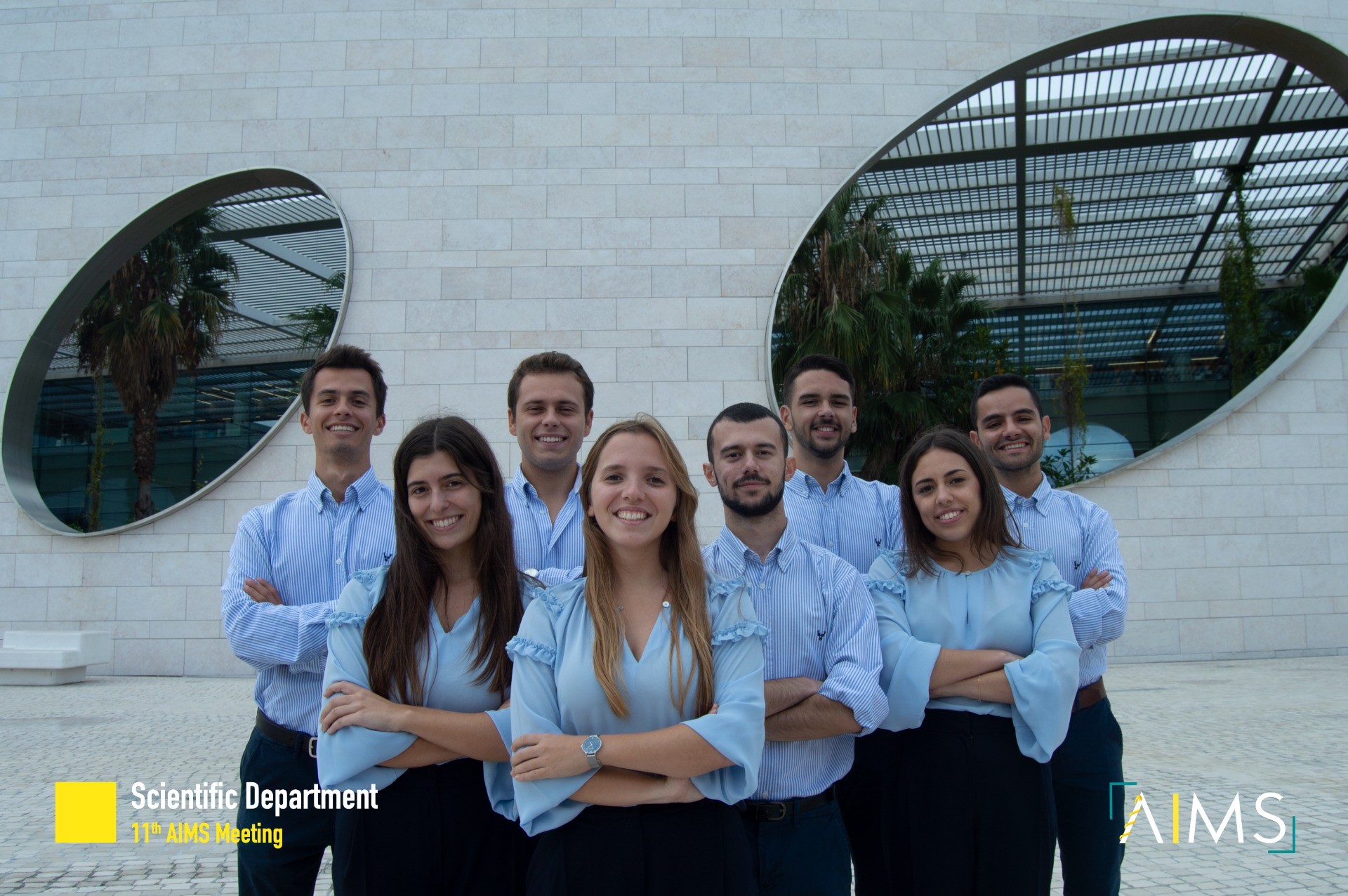
Everyone enters the room after having waited for us. They do not miss a minute and arrive ahead of time, before us. They bring backpacks, talk to each other, excited, as always. On time, as always, and smiling. Anyone who glances at them does not realize their importance, does not know what they already have in the backpack of their knowledge. While talking to each other and not feeling any focus of attention, they refer to the guests who will be on stage in less than a month by their first names; they could be close friends who share the same concerns. They are inspired by those who "left the straight line of the expectable" and changed their whole lives, precisely because they are always moved by beliefs and happiness, or, who knows, governed by a mission.
Indeed, we know that these are the people who mark us, who move us and inspire us when at some point in life we need references. These are precisely the people who will give the main talks at AIMS.
Do you still need more information? So let's see. In its 11th edition, the AIMS (Annual International (bio)Medical Students Meeting) continues to grow, positioning itself as one of the largest and best events in the world, organized by students from the Faculty of Medicine of the University of Lisbon.
It is tempting to think that we are only talking about a meeting between people from Medicine and Science. It goes well beyond that. Each year, the AIMS evolves more and more, Engineering is becoming more prominent and strengthens the Biomedical Congress by rebutting the initial concepts of an event more focused on the central themes of Medicine. Today, there are “border” topics, as they explain to me, reaching more and more audiences, with broader visions of the world.
Francisco Alexandrino and João Costa are the two Coordinators of the AIMS Scientific Committee. They were among the first to start this project in the scientific area, almost a year before the edition was ready to begin. In addition to them, there is Guilherme Vilhais, General Coordinator of the 11th AIMS Meeting who accompanies us in this meeting, even before a great European Biomedicine event that is about to start.
Francisco, we have already introduced the coordination team for each area of the AIMS in the past, but tell us about your scientific team.
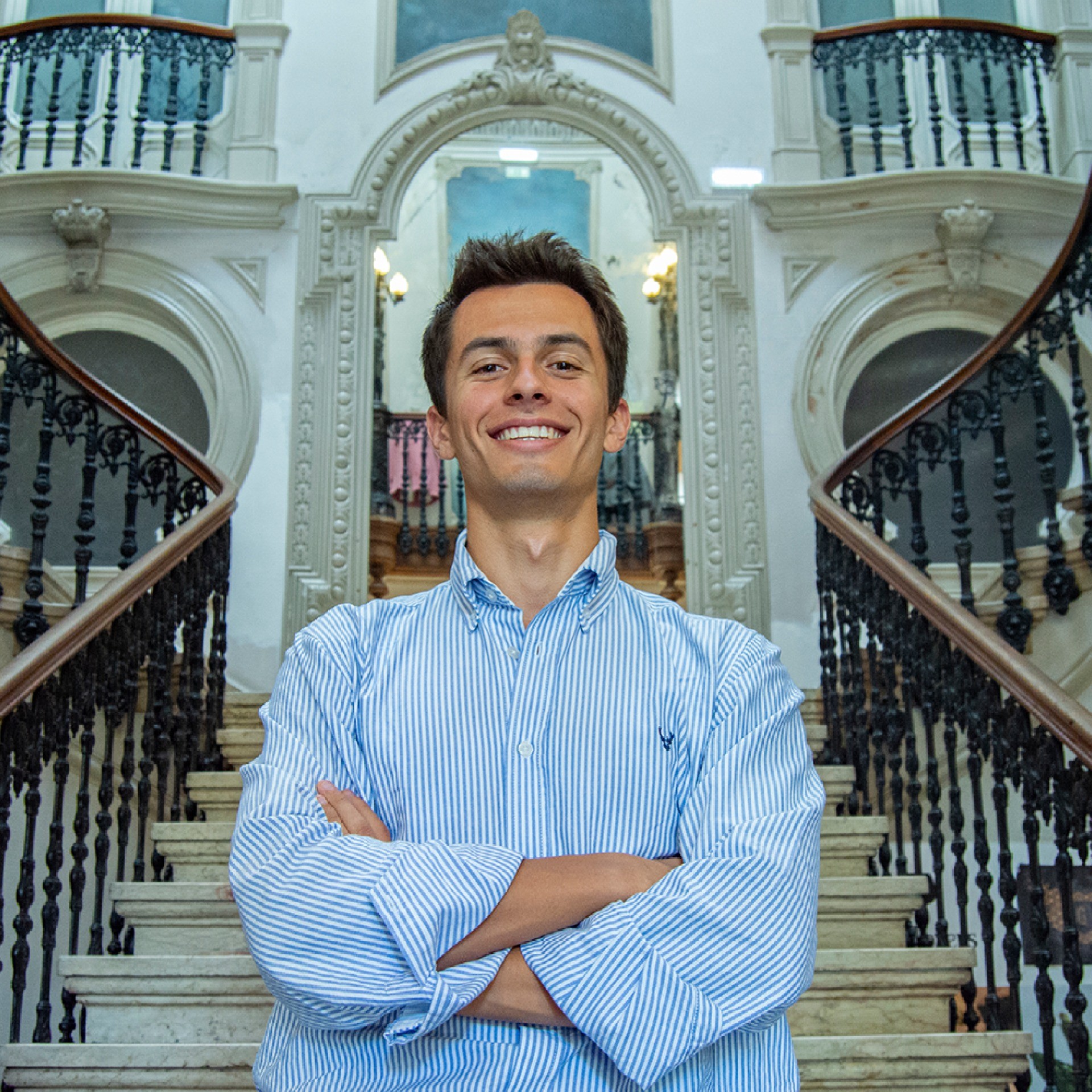
Francisco Alexandrino: Our work is very much based on inviting speakers. In fact, João and I started with the invitations to the keynote speakers, these are talks that are not much connected, they are more of an inspirational nature and pass on the out of the box idea. That is why we have people as different as an astronaut, a Nobel Prize winner, someone who comes to talk about immortality and ageing, or someone who is one of the main references worldwide in the field of Hepatitis. These are the presentations that we try to be the most impactful, mainstream and commercial.
But we have other functions in addition to this initial one: planning the thematic modules and creating a dynamic within each module, creating several workshops that this year will exceed, for the first time, one hundred in the most diverse areas of Biomedicine. We organise the 3 competitions, clinical, scientific and research that will take place. There is also the organization of the Science Speed Dating, an excellent opportunity for interaction between students and speakers, creating a unique proximity.
We also have the responsibility to invite all moderators of this year's modules - Upgrade Yourself, Self-destruction and Mind over Matter. This year we thought about moderation from a Science dissemination perspective, which made us think of concrete journalists in this area. The contact with scientific companies, which support our workshops, is also crucial.
How does the process of inviting these big names in Science who, one day, we all try to listen to take place?
Francisco Alexandrino: We sent more than 30 invitations and waited while we went on to form the modules. The persistence and articulation of these invitations was extended to the people we coordinate, who, in pairs, dealt with each of the specific modules and their guests.
But before we talk about the guests, how did this Scientific team get together?
Francisco Alexandrino: Like the whole AIMS group. The dynamics were transversal to all, but the criteria were slightly different. Characteristics such as dynamism, passion for science, and ambition are all part of this team’s selection criteria.

Guilherme Vilhais: Me, João and Francisco belonged to the Scientific Committee of the last edition. After the Coordination of this edition was formed, we opened external registrations, allowing students interested in joining the Organizing Committee to register. A selection process followed, which consisted of three phases: a form with several questions; an interview, where the aspects regarding the department to which the person is applying to were narrowed down; and, finally, a last phase of group dynamics in which the department's real work was simulated. In the case of the Scientific Committee, they were asked to plan an AIMS day with all available resources. Well, this group was the result of that selection process.
Francisco has already mentioned some characteristics, but can you tell me more about the criteria for choosing a person for an AIMS team?
Francisco Alexandrino: Both João and I had a lot of time for reflection. Afterwards, this reflection also extended to Guilherme. We had already created the central and ideal image of what we wanted the Congress to be, but when we were interviewing the candidates, many of them gave ideas that we had already thought of and that were even being planned. And this is because we think a lot about what people will want to know about Science and there are core topics, like Space Medicine, Ageing, Bionics, and Climate Change.
João Costa: One of the things we value most is new ideas, because we really like to keep our brand, but also to have different ideas about the Congress and that improves what already exists.
Francisco Alexandrino: And this difference was very marked this year. We have Afonso who, when he joined, was still in year 1, which is not usual. Then we have Inês Pinto, who is already in year 5 and the rest are year 3 and 4 students. In other words, the team is always very plural and has different views about our degree and science. Our meetings were always very dynamic, involving great discussion about science and very stimulating. We found ourselves discussing the future of science and debating profound scientific issues, with the exception of black holes…
(They laugh as if the last heated conversation about what the future is or what is almost here with us had taken place yesterday).

Joana, how do you end up in a team that has a challenge like this in hand?
Joana Ferreira: When I applied I only knew one of the people here (Nuno, who will be presented later). I had never even seen João and Francisco at the Faculty. I admit that I didn't even expect to be part of the Organizing Committee, because there were many people participating, all with such interesting dynamics. Now that we are all working together, the ideas’ process is great and we make decisions very easily, even when we have different points of view. But we work so well together that it ends up stimulating each one’s quality.
Clara, when you applied, did you already have a desire to join a certain team, or did you apply and just then you would know which team you would be part of?
Clara Oliveira: In my case I already had an idea, because from the moment we attended the Congress we became so impressed that we thought "I want to do this, I don't know how, but I do!". There are people who come in more gradually, first they are part of the task force (the team that helps on the days of the event), then they apply for more specific areas. I discovered this experience a little late, but I realized that everything was in line with my personality, because my passion is about how I can discover things, or work as a team. I applied and it happened.
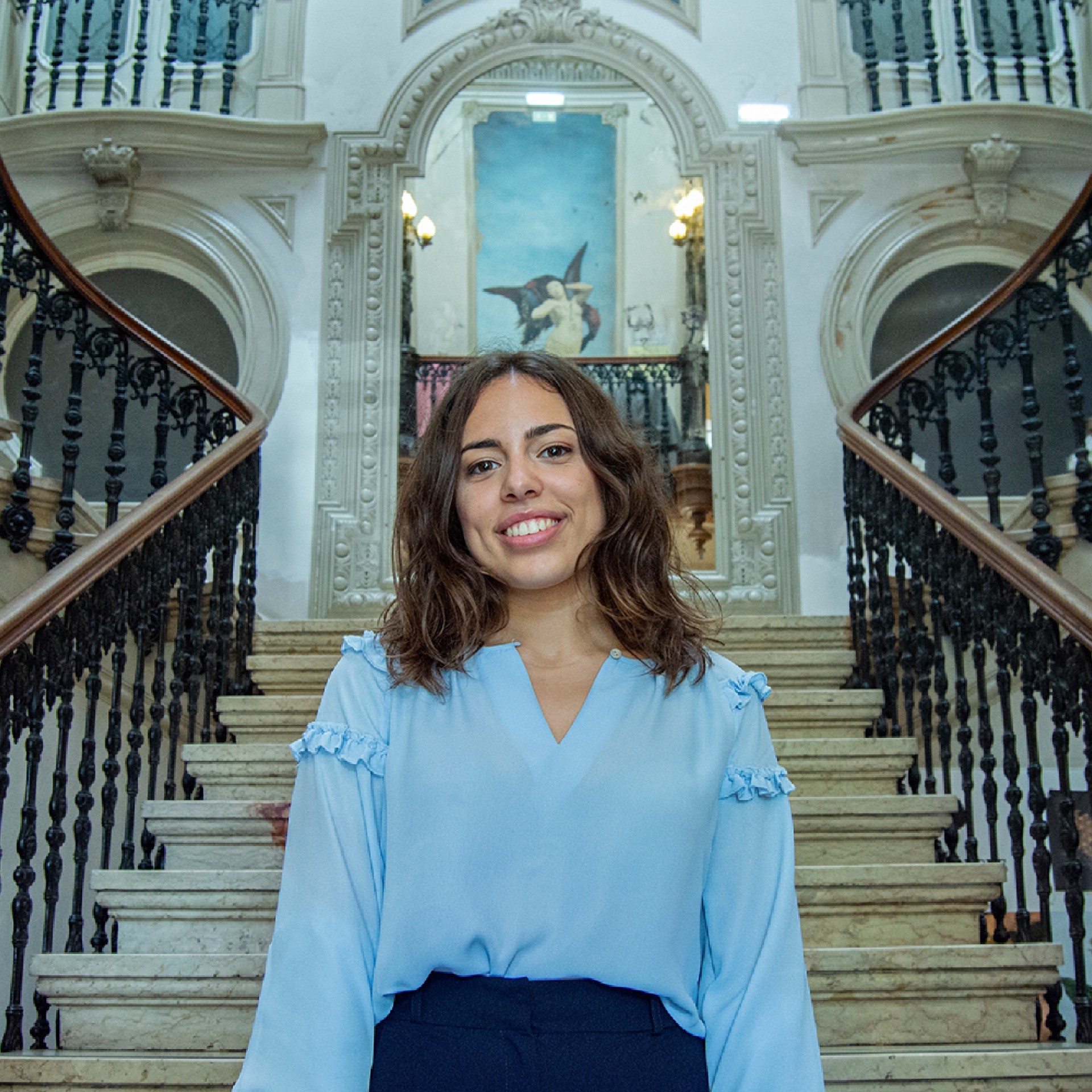
And in the third stage when the real simulation is requested, was the proposal megalomaniac or did it come close to this reality that awaits us in March?
Clara Oliveira: At that time, as there were no defined modules, what we could imagine would always have to be a little random. Then, it is not so much the ideas that are put into practice, but it is important to train to see if we know how to work with the existing tools and use them. I researched what I really like and, more than the person's professional path, what interests me is the way the person touches us. So, the question that we should always keep in mind is: "does this person bring me something different? Will the audience be inspired if they hear this talk?" And that was the way.
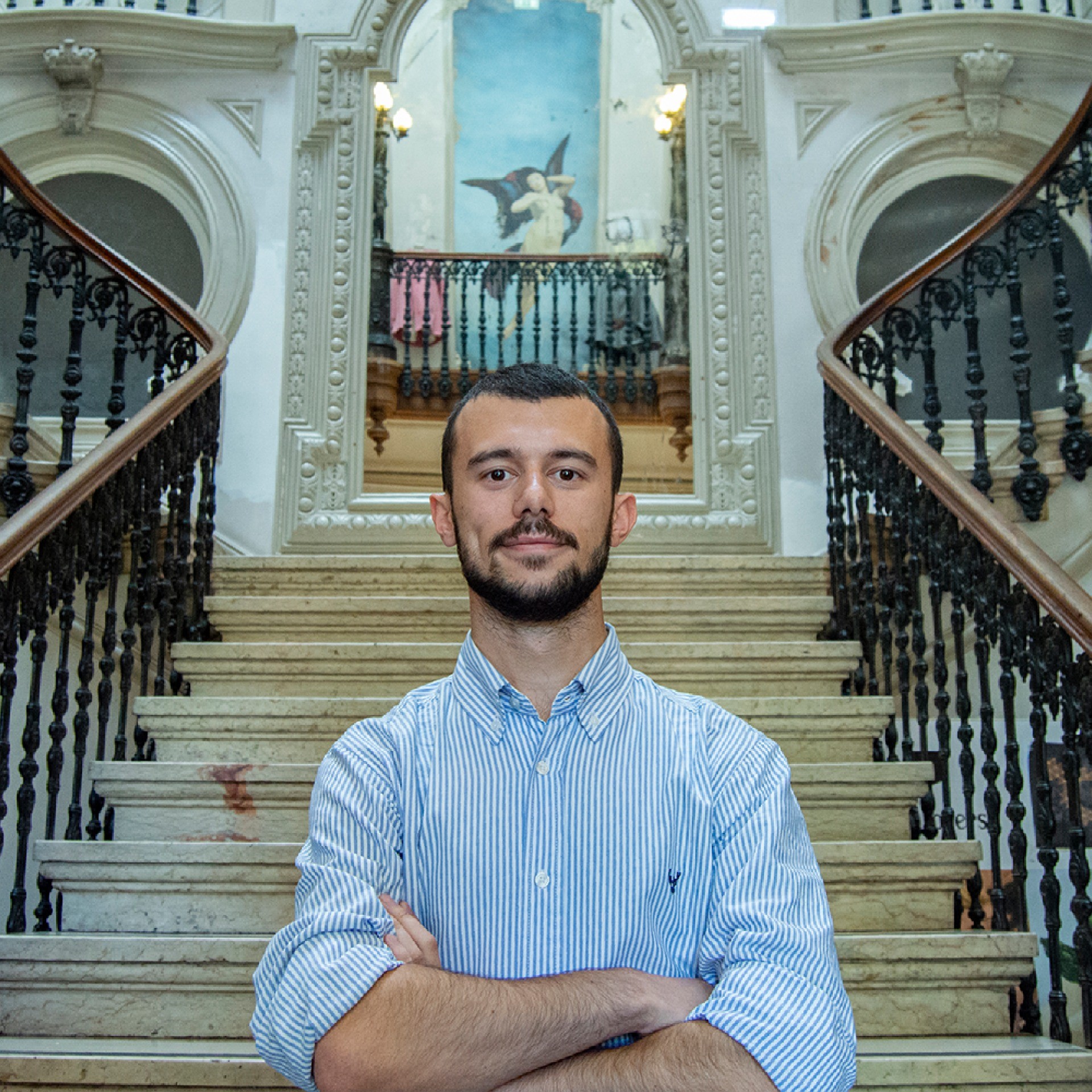
This perspective of putting yourself on the side of the spectator is interesting, but I would go further and say that you also put yourself on the side of public opinion, because given the level where AIMS has already been placed, you do not just want to reach the students, but also partner institutions in the country. I would even say that you want to have the same weight internationally. And there is also the press that follows you and provides coverage. Is this exercise of placing yourselves in the other's shoes difficult?
Tiago Peixoto: The answer is ambivalent. The moment I realized that I wanted to be at the AIMS was when I first joined it as a participant. That's when the motivation for wanting to be part of something that inspired us so much starts. The AIMS inspired me in such a way that I became more and more involved in the topics and in the various subjects. I ended up recalling the reason why I chose medicine, but thinking about the scientific area, something that sometimes fades a little when we find ourselves involved in exams and assignments. The AIMS gives us hope that we can contribute to something better in science. And in view of these perspectives, it turns out that it is not that difficult to put ourselves in the place of the spectator, because that is the profile that we usually intend to find in the audience, which once was also ours.
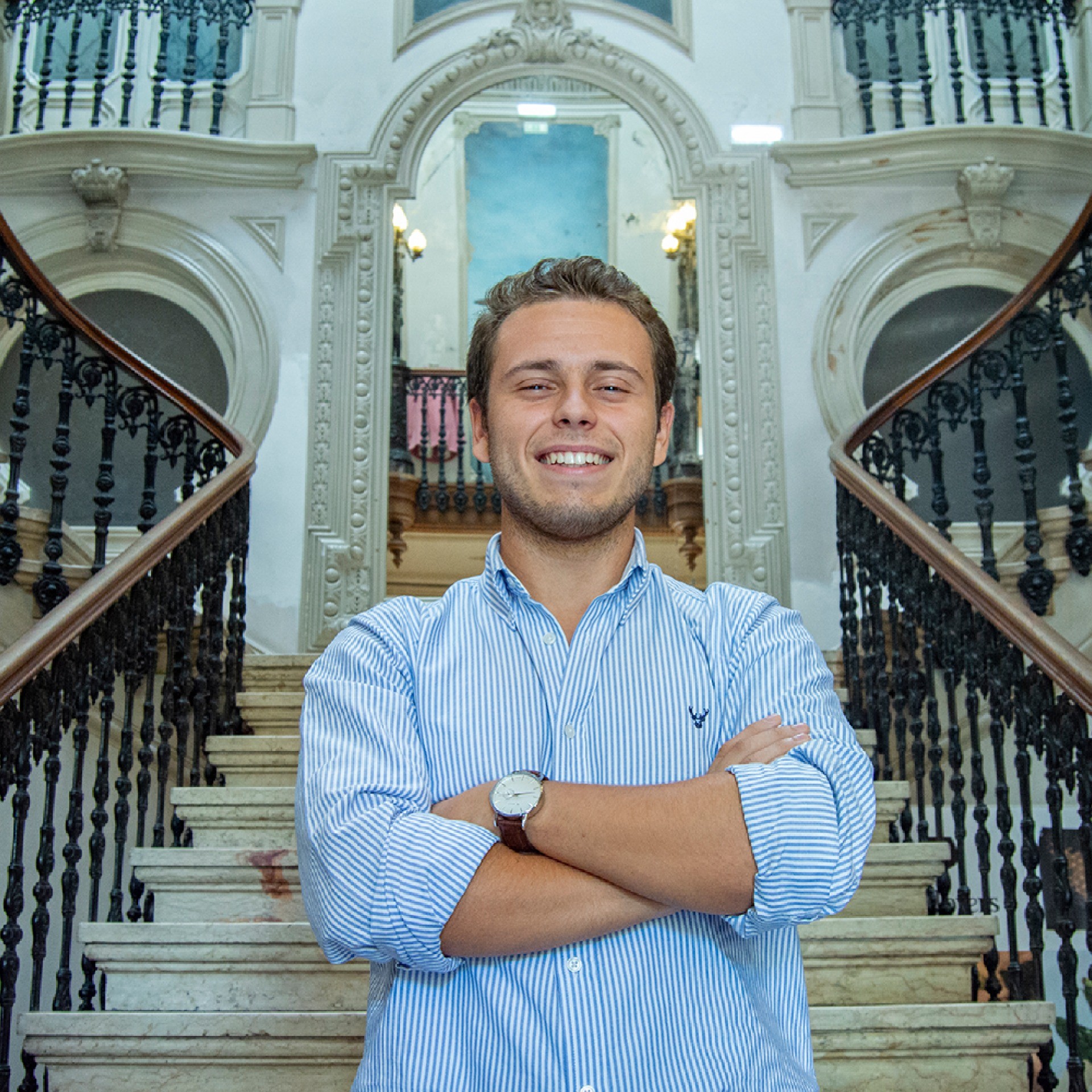
What were the major obstacles that you found in this working group?
Nuno Oliveira: One of the great obstacles is undoubtedly when we don’t get answers. We make several attempts at contact and the silence remains. The non-answer is always the most difficult to deal with, we prefer to get a straight "no" rather than to be dependent for a long time. But what is worse is when someone who has already ensured his presence then says he can no longer come. This upsets and affects the structure a little because it requires us to start everything from scratch. It is this lengthy process that turns out to be our greatest challenge.
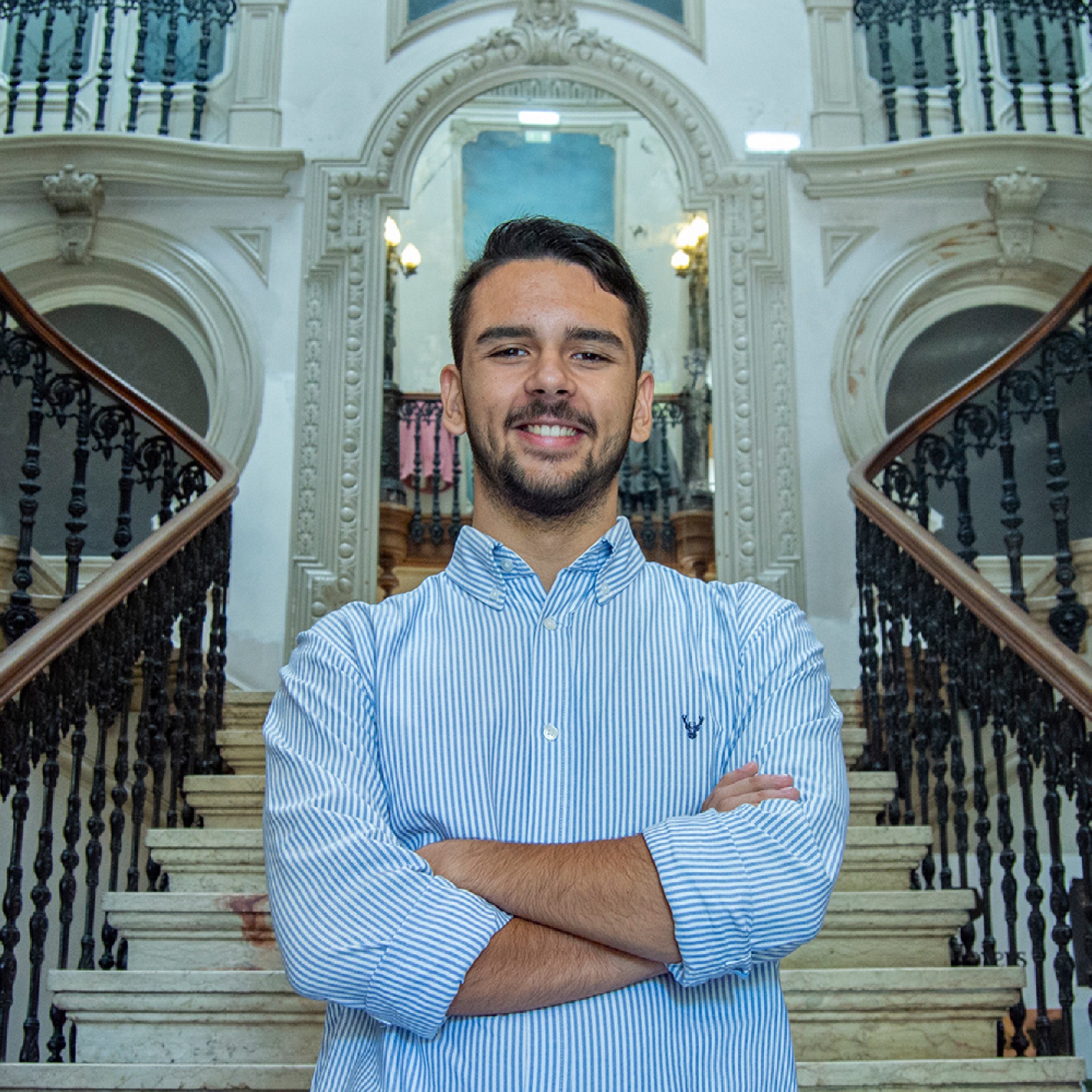
And when we get a "no" and go back to square one and especially if we still don't have that fine-tuned experience, how is it, Afonso? Or, if, after a "no", the guest who has just given up says "I can't go, but I have an alternative person who is great" and you think something like "great, but not the ideal person". How is this managed?
Afonso Ribeiro: (He laughs while everyone at the table laughs softly, as if waiting for me to have asked the right question to that person, Afonso, who is now in year 2) Being asked that question is really ironic... (Everyone laughs out loud) Once the module's theme is defined, we create a list of people to be invited, with a certain priority in view of our own expectations. That is, there are never bad people, but there are options that are at the top of our choices. I teamed up with Tiago and together we built the Self-destruction module. We made a list and chose three initial options, keeping in mind that the safest option would be to choose people with different themes. We sent out the three invitations and these three accepted, which turned out to be unprecedented in the history of the AIMS. But then we had a cancellation that ended up weighing more than an immediate "no". A cancellation always requires restructuring what was already planned. When we received this cancellation we were very lucky. Because instead of suggesting "the assistant of mine who is very good", our speaker decided to suggest a very prominent person with whom he made the bridge himself, making that person accept to come. The consequence of this "no" was very positive. And at the level where we stand, we just want to accept the best we can get.
Guilherme Vilhais: The event has such an impact that we try not to have any number 2. We always want the best in their fields.
Nuno Oliveira: Earlier we talked about our keynote speakers and there is some curious information. Many of our speakers, who are not the keynote speakers in our Congress, end up being keynote speakers at other events. They accept our invitations because they recognize the importance of the AIMS.
Tiago Peixoto: When we approach keynote speakers and researchers, we always explain, from the beginning, the purpose of our Congress and what our expectations are. When this speaker cancelled, he knew perfectly well what we were looking for and that is why he suggested a person so relevant that fits our profile perfectly.
Francisco Alexandrino: It is important to mention that on 31 August 2019, we already had 11 of the 13 total guests. In other words, the job requires planning well in advance. If, on the one hand, we ask for confirmations a long time in advance, on the other hand this is what allows us the rigour of the work that we have conducted. Instead of enjoying summer on the beach, we were doing a lot of research and backstage work.
We all know the level of keynote speakers that have had here. We expect the level to remain high. We speak of very intelligent, renowned and influential people. Do you also have to work with their egos?
(General laughter, some cough, but nobody says anything)
Guilherme Vilhais: Sometimes it is difficult to manage these people. We have many surprises. There are people who have gone as far as they could in science worldwide, won a Nobel Prize in Medicine or Chemistry and who accept to come here just for the project, travelling low cost and not demanding anything. Then, we have another profile of people... with a different attitude. They realize that the Congress already has a dimension that justifies coming, but, on the other hand, they make a series of demands. We have to learn to work on these egos, trying never to compromise the coming of the speaker, which is our priority. This implies being able to meet, as much as possible, their demands. But we have to be aware that in order to invite certain types of people, we have to be willing to accept certain types of demands, even if this requires changing the paradigm of what was done in previous editions.
But that also means having lots of resources, or am I mistaken?
Guilherme Vilhais: Yes, it does. The AIMS works in a chain, the more success it has in the previous year, the better the work base of the following year. And we started working on an event that was very successful last year. This opened doors, we managed to have meetings with people who were much more influential and who before would not receive us. We have grown in all aspects, even regarding the support of companies and it is largely thanks to them that we have managed to keep ticket prices at such low cost. But, this support also comes internally, from the AEFML. We want, of course, that all aspects of our congress are perfect or almost perfect, but the big stake is, of course, the scientific choice of the panel of speakers.
And are there egos within a team like yours?
Guilherme Vilhais: We must know how to be fair to everyone in relation to the resources we have. The goal is that everything is very good, but of course there are areas that can always be more affected. Even internally, it is necessary to know how to manage everything with the utmost diplomacy and this is also educational, a learning for life. Achieving what we want without getting into too much confrontation, facing several barriers, but knowing precisely where to focus our energies. It becomes a very interesting job, even challenging.é.
Looking at the work that has been done so far, what awaits us in March?
Francisco Alexandrino: Over 40 new practical workshops await us. In other words, whereas we had 81 last year, this year we will have another 30, thus more than 100 workshops. Based on last year's evaluations, those that did not have a very positive evaluation were removed and replaced with new ones, thus trying to adapt and improve our offer. Then, we will continue to innovate.
Francisco, to attain such a high level, can you do everything here on campus, or do you also have external events?
Francisco Alexandrino: Some workshops will be held at other institutions with which we have established partnerships. It is in conjunction with the Logistics Department that we guarantee the transport of participants to these external workshops. What we want to offer are practical, innovative courses that open new doors, while making it possible for participants to "get down to work".

João Costa: In order to maintain the workshops’ training quality, we do not want to increase the number of vacancies much and since we offer two training sessions to each person who registers in the AIMS, for each participant place that we increase we need 2 more workshop places. At this moment, by reaching over 100 workshops, a limit of participant places and internal spaces is reached, making it impossible to have them here on campus.
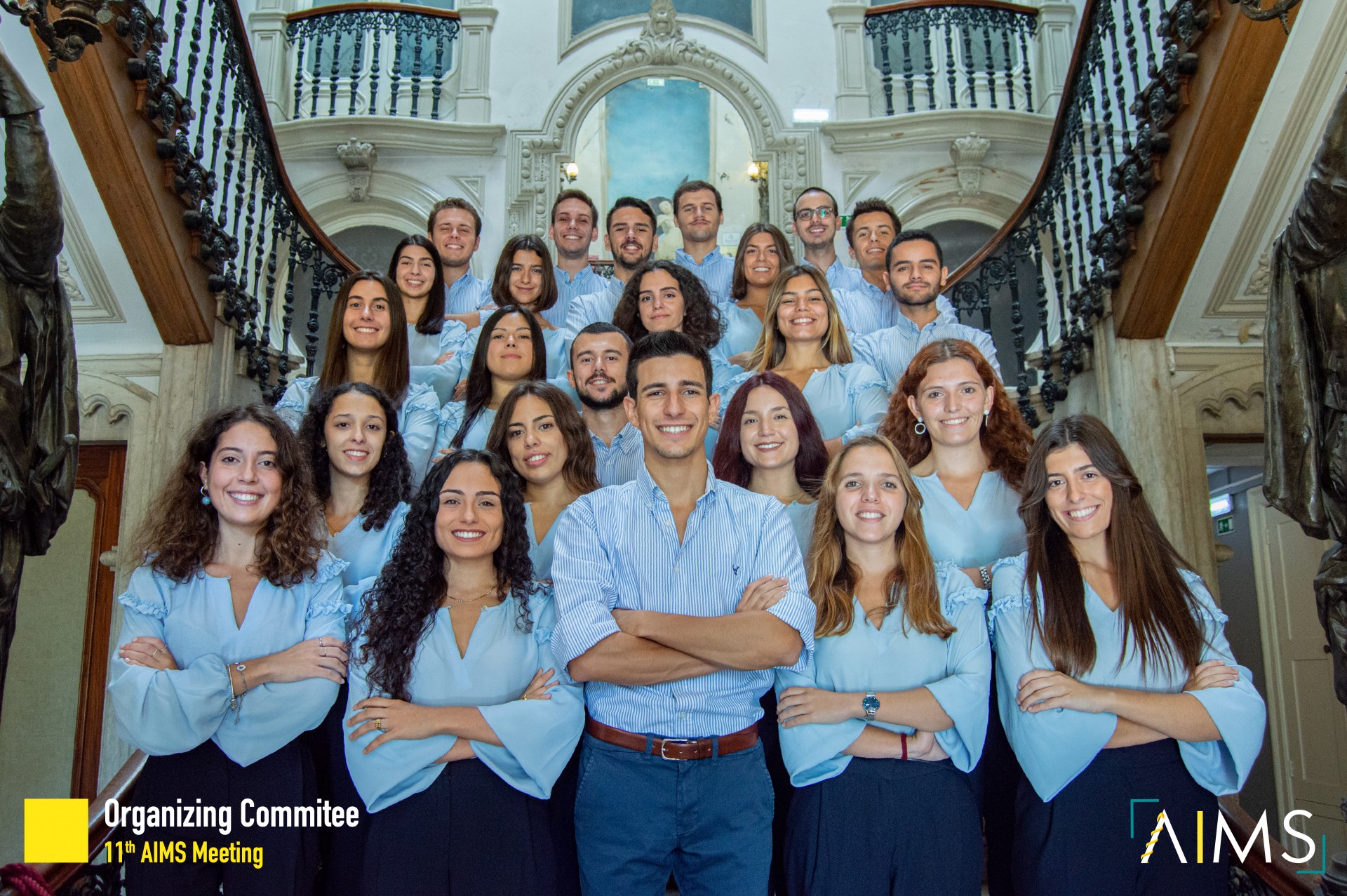
The aspirational side that allowed them to fulfil their most ambitious dreams was born on the day when they were mere spectators in an audience of hundreds of participants. To be involved in the AIMS for its statute or curriculum purposes is not the quick answer that everyone gives me, but nowhere else do they feel they are learning much more than in any professional market. Many sacrifices were made throughout the year, alongside study times, with the times of work embedded in their lives, but everyone realized that they would come out especially enriched. It is not in vain that Francisco says they are between 19 and 22 years of age and already dealing with Nobel Prize winners.
The workshops will start on the Thursday before the Congress, and will continue on Friday and Saturday. Of the 2000 vacancies in total, on Thursday alone 1000 will be filled. The remaining 1000 will be distributed between Friday and Saturday.
For those who think they will be part of an upcoming AIMS team, Guilherme Vilhais leaves some clues, "come for the right reasons, with the notion that you gain a lot from the perception of how this world works". To be part of the Organizing Committee “is to acquire lifelong learning, time management skills, teamwork experience, assertiveness and pragmatism. It is leaving more capable than when you entered".
From years 1 to 5, without prejudice of age or teaching experience, it is also important to say to those who apply and do not join that they cannot give up because, as I am told, some of them were not selected the first time they applied.
Everyone remembers the route taken until finally joining the scientific committee with pride. Even today it is hard for them to believe the speakers they have had. They laugh with the healthy expectation of those who are about to take the big stage, the stage of the centre of science, which is increasingly in the world and no longer just in Europe. We will meet again in another edition that promises to mark another year in the history of the AIMS Meeting.
Meet some of the main speakers now:
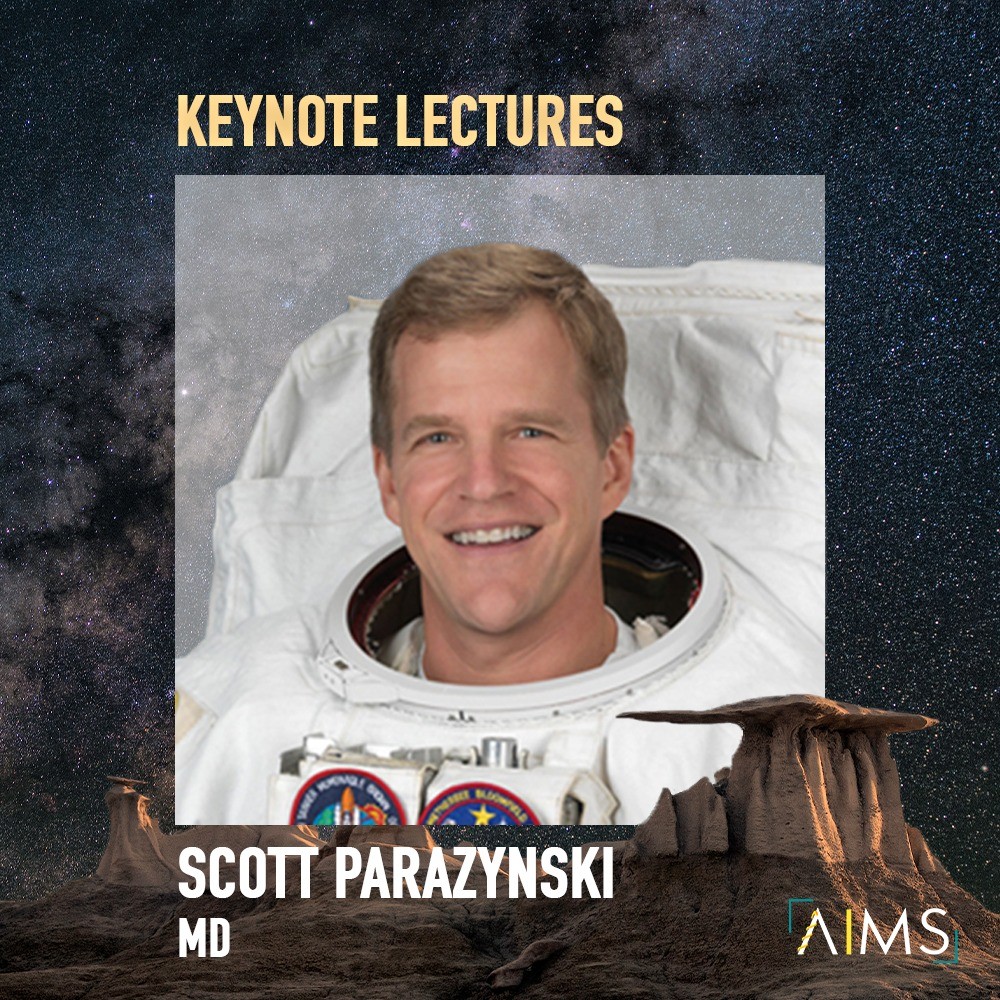
Scott Parazynski - United States Astronaut Hall of Fame, NASA doctor, adventurous by nature, reached the top of the Everest, CEO of technology companies, writer and a father. It is difficult to have a more complete and fulfilled life than his. Perhaps what he lacked was to come to AIMS, an event at the level of his great career.
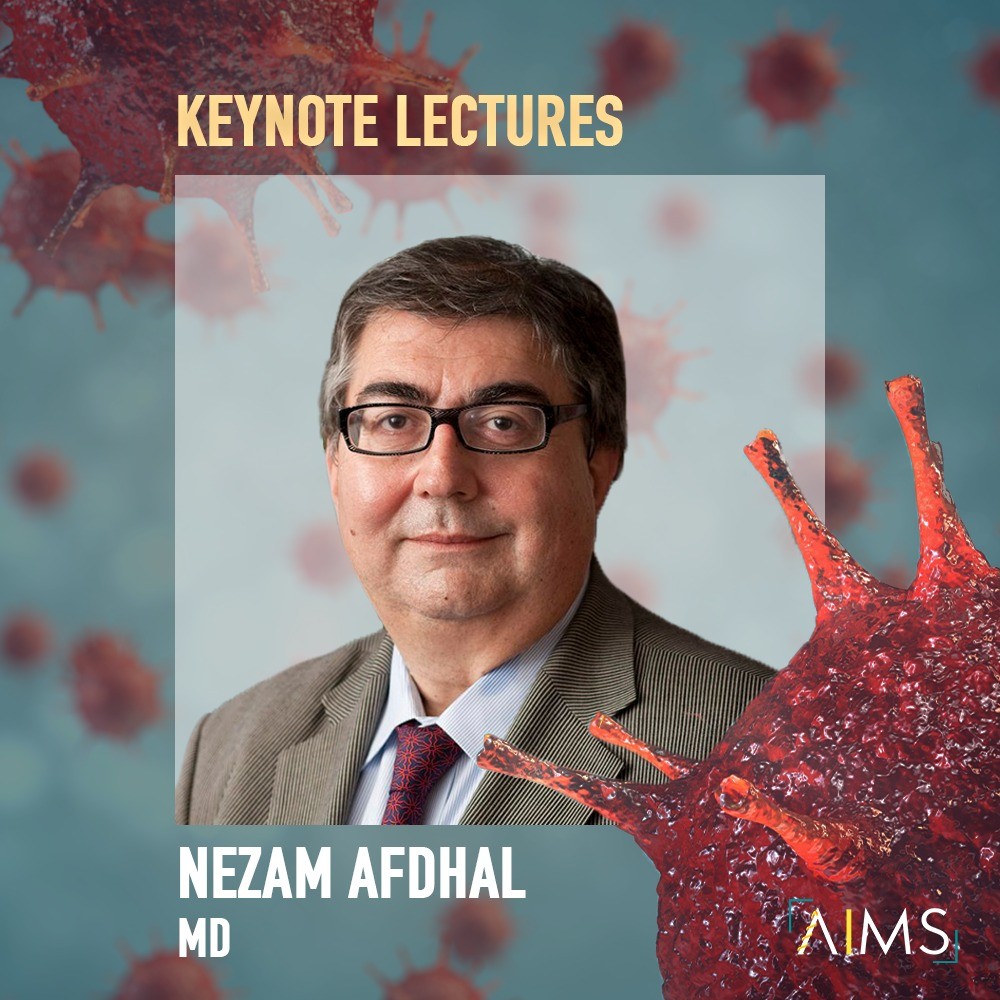
Nezam Afdhal - The son of Iraqi and Iranian parents, after studying medicine in Ireland, he went to Boston, US, to find a way to cure terrible diseases. He is currently linked to innovative programmes to eradicate Hepatitis C in countries like Georgia and Zimbabwe.
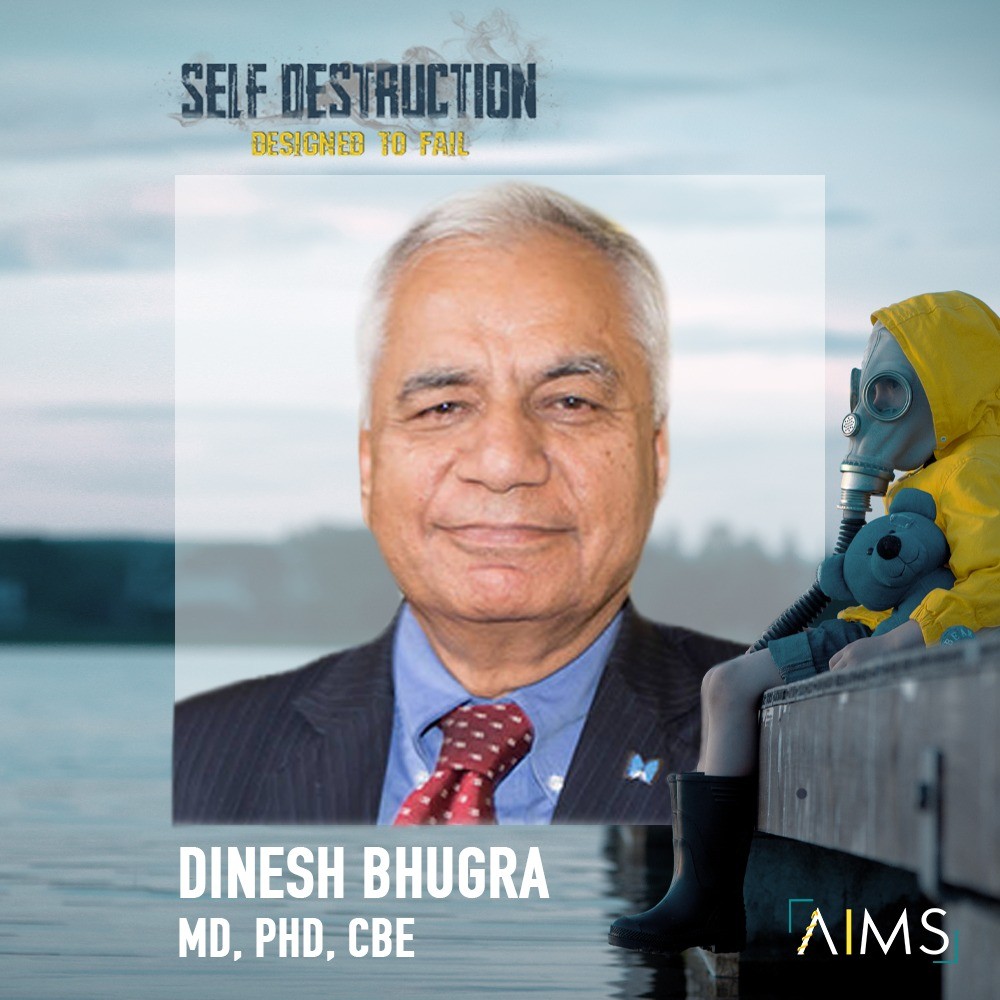
Dinesh Bhugra - One of the biggest international names in Psychiatry, he never gives up. From the evenings spent studying under the light of the street lamps in his small village in India to becoming president of the World Psychiatric Association, Dinesh is an essential figure in the representation of how passion and dedication can be put at the service of those who are more vulnerable, such as his work in the field of Refugee Mental Health.

Rosalind Picard - MIT (Massachusetts Institute of Technology) professor and an entrepreneur, it is not possible to talk about the development of artificial intelligence related to emotions without talking about Professor Rosalind. She created the first FDA approved smartwatch capable of detecting a seizure early and immediately issuing a request for help to a caregiver. She dreams of the day when health protection will be the basis of medical care and that is why she also works to fight depression through its prevention with the use of technology.
Good luck!
Joana Sousa
Editorial team

